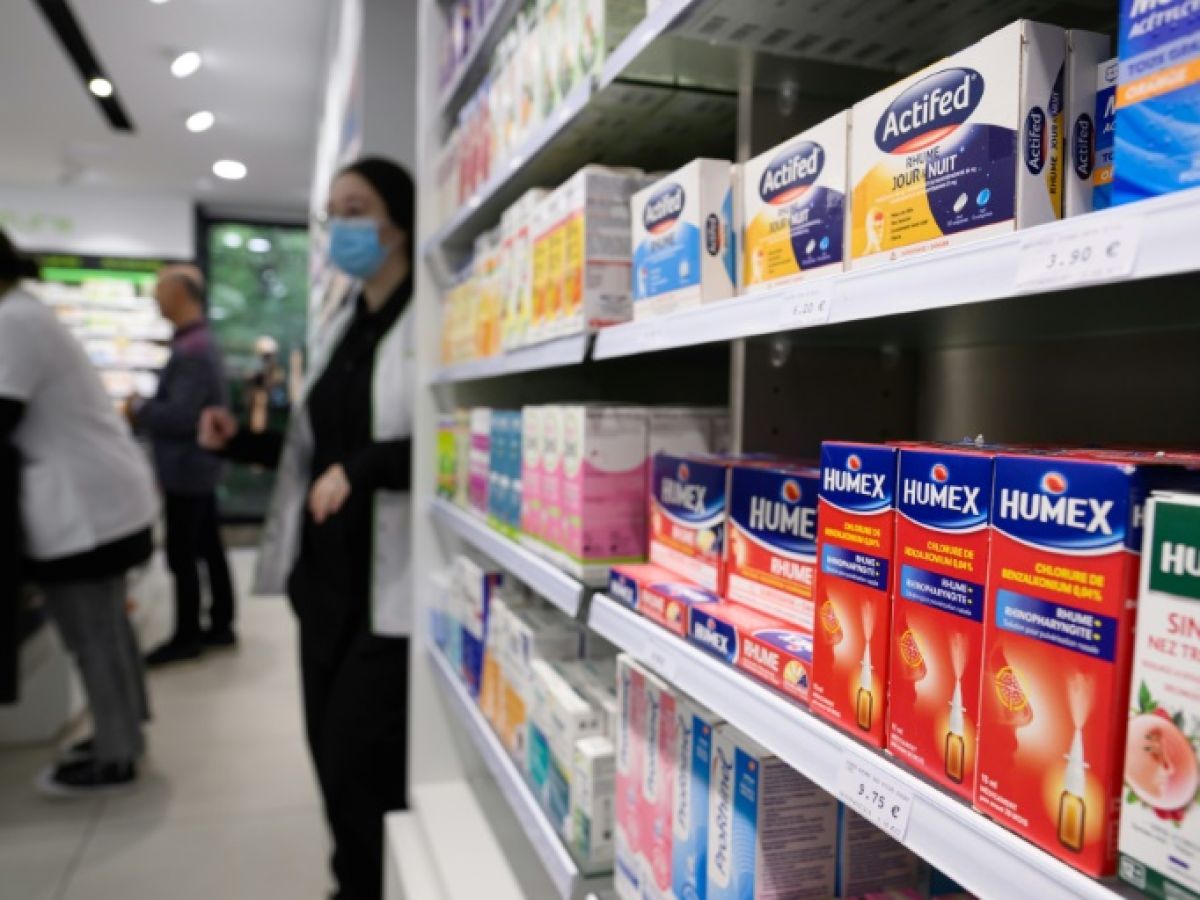As of December 11, French health authorities have made it mandatory to present a prescription at a pharmacy to obtain eight popular anti-cold treatments widely considered dangerous.
“ In view of the many contraindications, precautions for use and known adverse effects of pseudoephedrine and the benign nature of the cold", the National Agency for the Safety of Medicines (ANSM) considers that " The possibility of obtaining these drugs without medical advice poses too great a risk to patients » a decision unveiled on December 9.
“ We ask prescribing physicians to carefully assess the benefit/risk balance for each patient before prescribing one of these medications.", added the ANSM, whose decision to ban was awaited.
On sale over the counter despite their danger
The following are concerned: Actifed Cold, Actifed Cold Day and Night, Dolirhume Paracetamol and Pseudoephedrine, Dolirhumepro Paracetamol Pseudoephedrine and Doxylamine, Humex Cold, Nurofen Cold, Rhinadvil Cold, Ibuprofen/Pseudoephedrine, Rhinadvilcaps Cold Ibuprofen/Pseudoephedrine. These medicines all contain the molecule pseudoephedrine. Widely considered dangerous for years, the main anti-cold treatments were still available over the counter. As winter approached, French health authorities were considering finally putting an end to this paradox.
Available over-the-counter in tablet form, these treatments—also sold as prescription nasal sprays—aim to decongest and clear the nose. They are therefore the main medications used against colds. However, they have been the subject of much criticism for several years, starting with the ANSM itself, because they can cause serious side effects such as strokes and heart attacks.
In 2023, the agency explicitly advised against their use for the first time. This decision temporarily caused sales of cold treatments to decline. However, they have been rebounding since September.
Read alsoThe blacklist of drugs to avoid in 2025 and the alternatives to do without them
Rare but serious effects
“ The risk reduction measures we have put in place, such as banning advertising to the general public, providing regular information on the dangers of oral vasoconstrictors, and providing practical documents for patients and pharmacists, have not sufficiently reduced the population exposed to the risk of rare but serious adverse effects.", writes the ANSM.
Why not have banned these drugs outright earlier? French health authorities regularly explained that their hands were tied by European regulations, which subject the withdrawal of an authorization to the opinion of the European Medicines Agency (EMA).
However, last year, the French regulator had decided that the anti-cold treatments in question did not present sufficient risks to warrant banning them, even though it imposed new contraindications. This opinion is explained by the fact that serious side effects remain very rare. A few are reported each year, and in France, no deaths have been reported.
However, the French authorities finally ruled that the risk, even if low, was unacceptable given the benign nature of the illness being treated: a simple cold. This position is in line with the main French learned societies (ENT specialists, general practitioners, pharmacists), all of which oppose the use of these medications.
However, it risks upsetting pharmacists, many of whose representatives believe that such a restriction unfairly reduces the range of medications they can offer their customers with colds, in a context marked by recurring difficulty in obtaining medical appointments.
“ It's going to become complicated for us to address patients' problems. People won't have doctors anymore, and we won't be able to give any advice.", estimated in the Quotidien du Pharmacien Beatrice Clairaz-Mahiou, co-president of the French-speaking Society of Officinal Pharmaceutical Sciences (SFSPO).
But, for other observers, the health authorities have, on the contrary, already been too slow to react. Healthcare providers have better things to do than spend time advising patients against a drug that should be withdrawn from the market.", estimated the independent magazine Prescrire at the beginning of the year.


